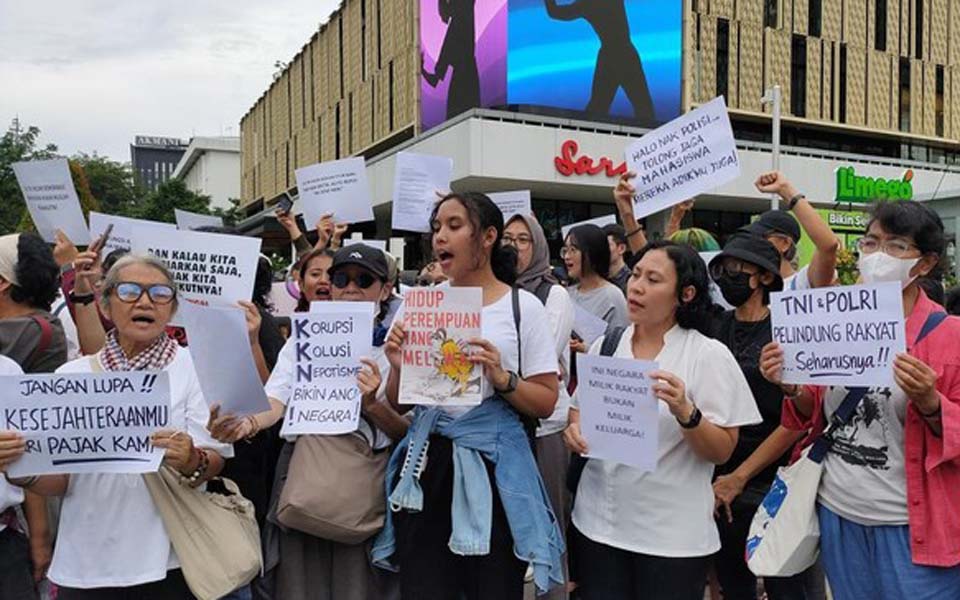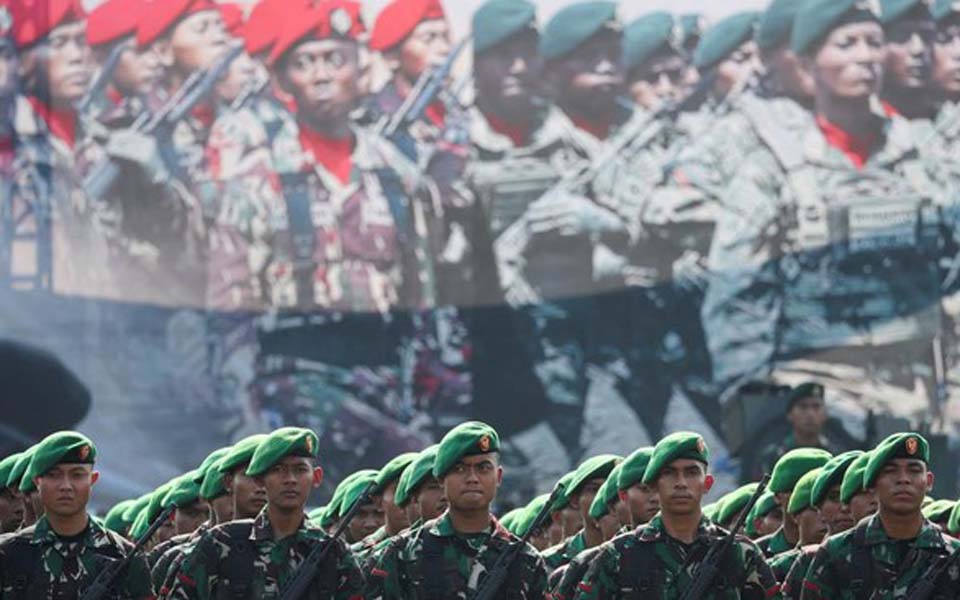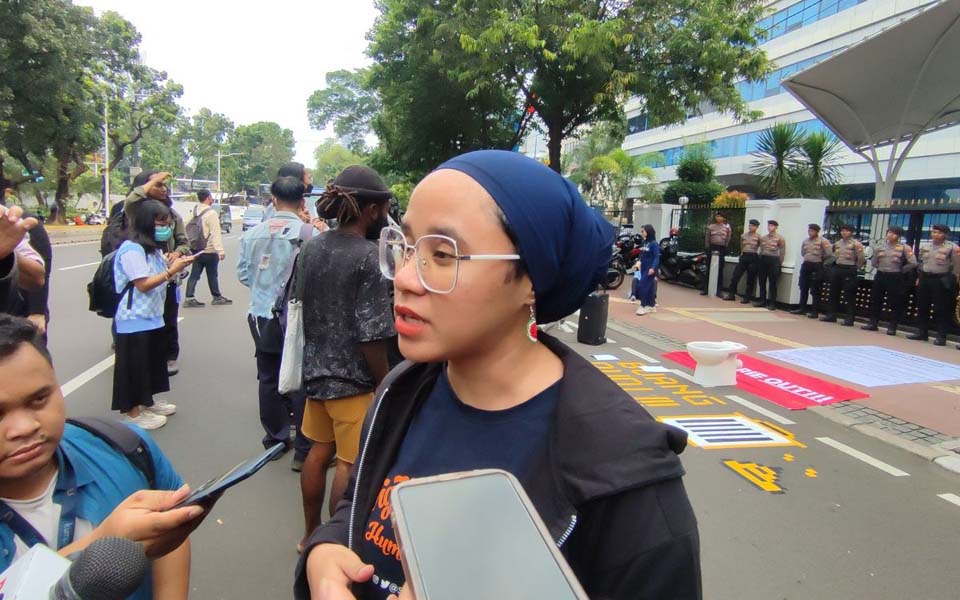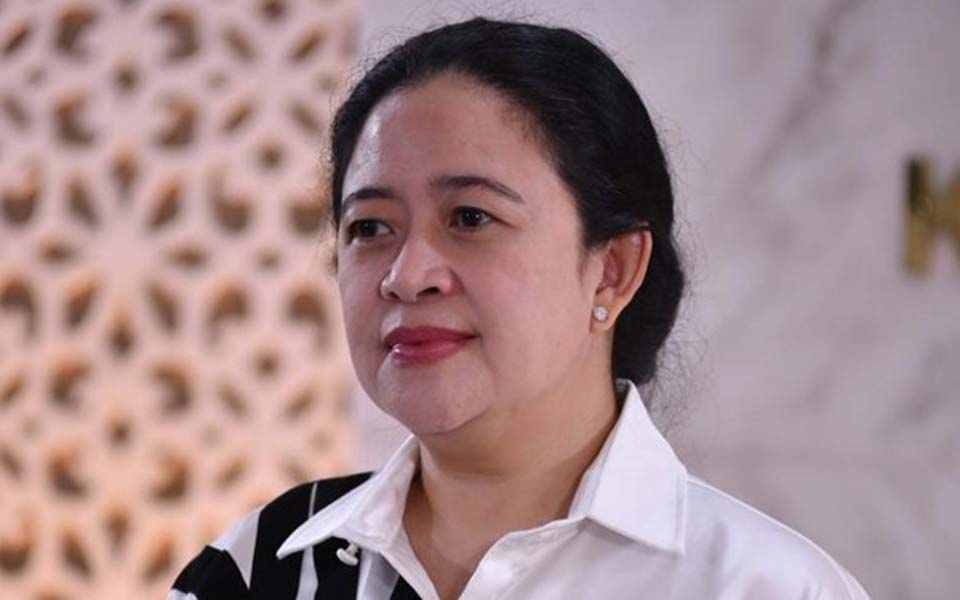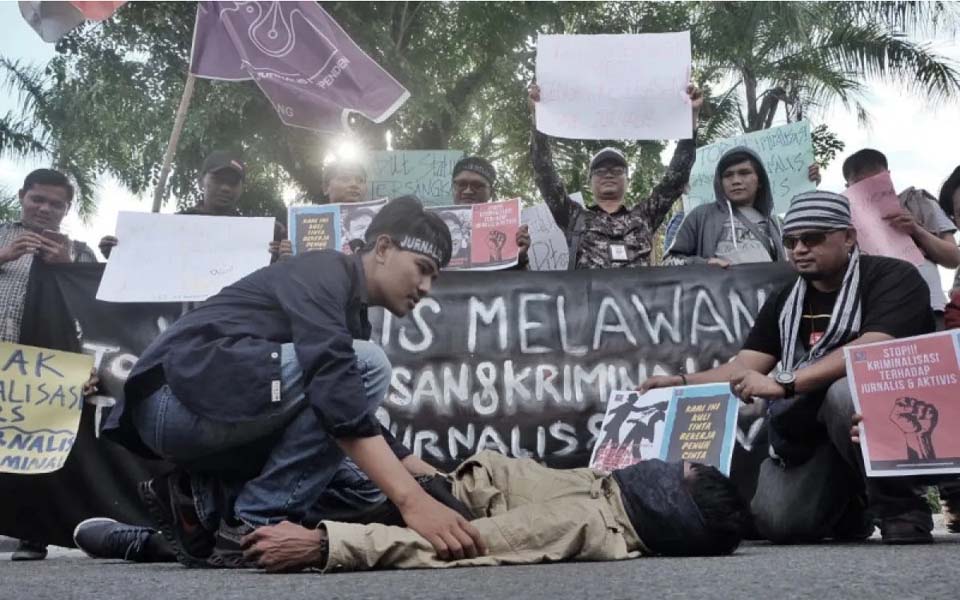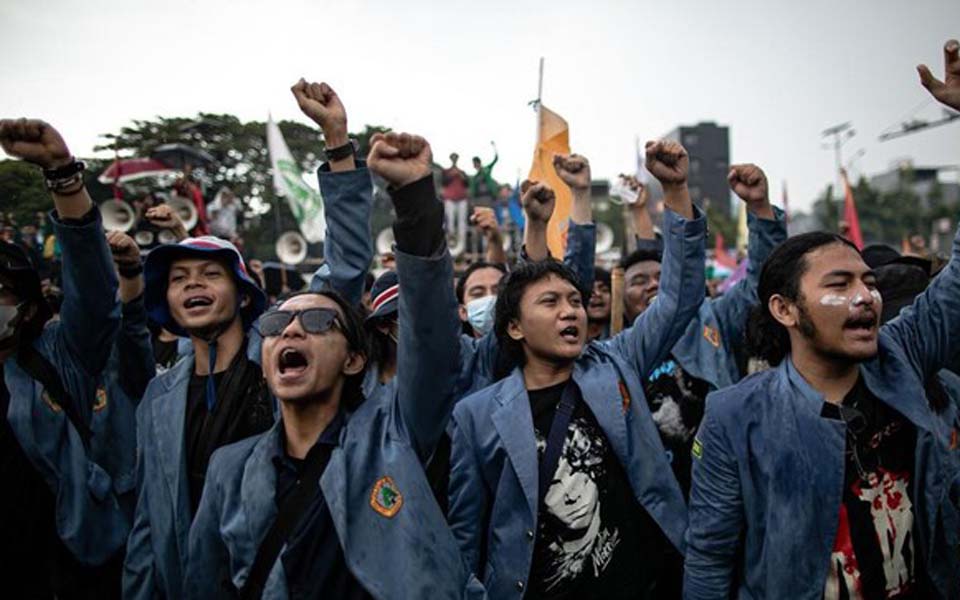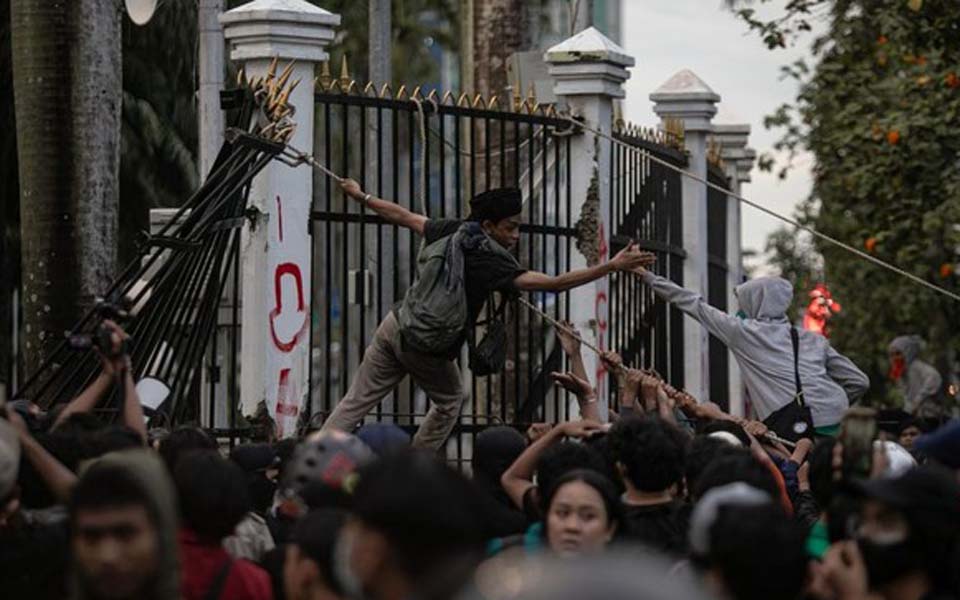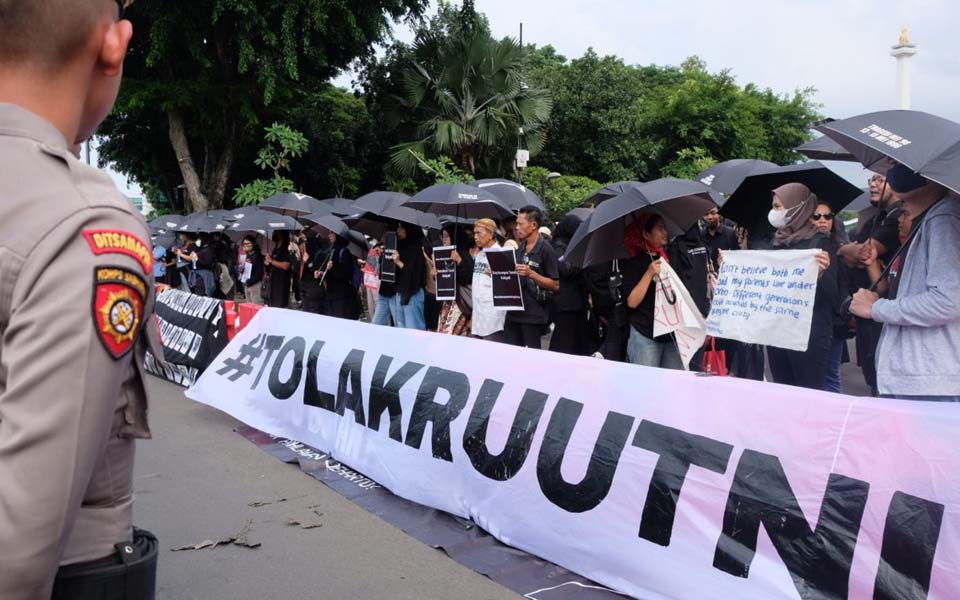Jakarta – Although optimistic, the chief of the Indonesian armed forces (TNI), General Endriartono Sutarto, has said that there is no guarantee that the 2004 general elections will proceed without security disturbances. In order to anticipate such disturbances, Sutarto has asked the Indonesian police to involve TNI personnel, who have years of experience in elections, before the event.
“Is there a guarantee that there will be no disruption to the elections? No! But I am not being pessimistic. A few disruptions are normal. Even in a soccer match there are fights”, said Sutarto in a workshop titled “State security and anticipating terrorist threats in the lead up to the 2004 elections” which was held on Tuesday March 2.
Sutarto explained that there is a possibility that disturbances will arise during the period of campaigning by the political parties which involve thousands of people. In order to minimise disturbances, Sutarto has explicitly asked the national police to take legal actions against those who violate the electoral laws. To date, his assessment is that the police on the ground have not been capable of doing anything when they encounter such violations.
“I have come across groups of youths riding on the roofs of buses on public streets. There are police there in the street but they just do nothing”, he said. Understanding the limitations of the police, Sutarto has made an offer for TNI personal to be involved in the organisations of the elections from the start. “Don’t go asking for the TNI’s help after the situation has already turned difficult”, he said.
Sutarto again spoke about the possibility of disruptions to the elections though a judicial review of the election laws. “This must be anticipated. Don’t leave it until a judicial review becomes a means to foil the elections”, he said. Sutarto acknowledged that he had already warned the Constitutional Court to this effect. “A judicial review is a legal motion, but can be used to foil the elections. Because of this, the Constitutional Court needs to be more selective in responding to judicial reviews”.
Demonstrations
Meanwhile, the Islamic Youth Movement (GPI) demonstrated at the Constitutional Court yesterday, rejecting the decision to abolish the prohibition against ex-members of the Indonesian Communist Party (PKI) becoming legislative candidates. The youths were met by the head of the Constitutional Court, Jimly Asshiddiqie. They said that the PKI was a historical deformity, anti-democratic and anti-God.
According to Erik, one of the members of the Jakarta branch of the GPI, the majority of the victims of the PKI massacres were from the Islamic community. Therefore it was difficult for the Islamic community to forget what was done by the PKI. “We regret the statements by the Pak Hasyim and Syafii Maarif1 who did not make an issue of the Constitutional Court’s decision. The Constitutional Court’s decision could [result in] a reemergence of communist ideology”, said Erik.
In response to these calls, Asshiddiqie explained that truth and justice do not always side with the majority. Truth and justice can also side with the minority. “Democracy, as well as adhering to the principle of the people’s sovereignty, also adheres to the sovereignty of the law. The people’s sovereignty must be controlled by the law, and the highest law is the constitution”, he said.
The public must be able to classify the PKI in terms of being an organisation, its communist/Leninist teaching, and the adherence to communist views. “The PKI, based on MPRS Decree Number XXV/1996 has already been disbanded and cannot be brought back to life. However in reference to individual people [they] must be seen [in terms of their] involvement [in what actually happened]. Now, these people have already been punished but without going through the courts”, said Asshiddiqie. (VIN/INU)
Notes:
1. Hasyim Muzadi, chairperson of the Islamic mass organisation Nahdlatul Ulama. Syafii Maarif, chairperson of the Islamic mass organisation Muhammadiyah.
[Translated by James Balowski.]






